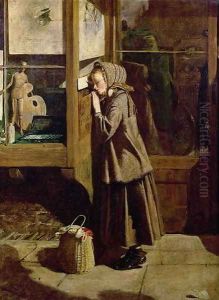R.W. Chapman Paintings
Robert William Chapman, commonly known as R.W. Chapman, was a seminal figure in the world of literary scholarship, particularly known for his work on the novels of Jane Austen. Born in 1881, Chapman's academic and editorial contributions have had a lasting impact on the study of English literature, although he was not an artist in the traditional sense of painters or sculptors, his mastery over the textual analysis and editing of classic literature has carved him a distinguished niche in the history of literary arts.
Chapman's education and career were deeply rooted in the classics; he attended Oriel College, Oxford, where he distinguished himself in classical studies. His interest in literature and textual accuracy led him to embark on what would become his life's work: the meticulous editing of Jane Austen's novels. In 1923, Chapman released an edition of Austen's works, which was groundbreaking in its rigorous approach to textual accuracy, basing the texts on the earliest available copies and meticulously collating them to ensure fidelity to Austen's originals. This edition is often hailed as the first scholarly edition of Austen's works, setting a new standard for literary editing.
Beyond Austen, Chapman also made significant contributions to the study and editing of Samuel Johnson's works, including the influential 'Johnson's Letters'. His editorial philosophy was characterized by a profound respect for the historical and cultural context of the texts he worked on, and a meticulous attention to detail that has influenced generations of literary scholars and editors.
Despite the specialized nature of his work, Chapman's influence extends beyond the academic community. His editions of Austen's novels helped to solidify her status as a central figure in the English literary canon and contributed to the resurgence of interest in her work during the twentieth century. Chapman's dedication to preserving the integrity of literary texts and his pioneering editorial techniques have left a lasting legacy in the field of literary scholarship.
R.W. Chapman's contributions were recognized in his lifetime, and he was regarded as a leading figure in his field. He passed away in 1960, leaving behind a body of work that continues to influence the study and appreciation of English literature. Through his scholarly rigor and dedication to literary preservation, Chapman exemplified the profound impact that careful, thoughtful scholarship can have on our understanding and appreciation of literary art.
